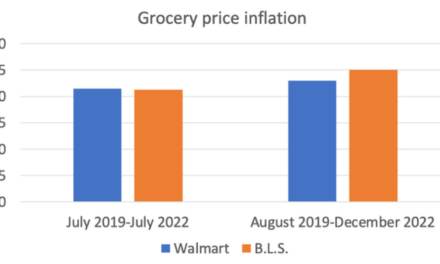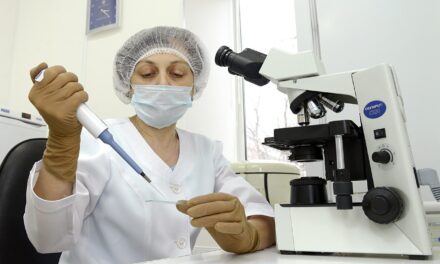We support our Publishers and Content Creators. You can view this story on their website by CLICKING HERE.
Newly expanded genetic testing expands concerns about eugenics in assisted reproductive technology by allowing parents to choose which of their unborn children live and die based on their alleged predisposition to physical and mental conditions.
Orchid Health, whose motto is “Have healthy babies,” is the startup responsible for developing and marketing the first commercially available whole-genome-sequencing embryo test in nearly three dozen fertility facilities in the United States.
For $12,500, anyone who already paid the hefty price to undergo in vitro fertilization and create embryos can have five of them biopsied — the process of removing five cells out of the 120-cell embryo — by genetic screeners. The San Francisco-based company. Orchid claims its whole-genome analysis will help IVF customers “mitigate more risks” when choosing which of their unborn children to implant and carry to term.
The technology allegedly sequences more than 99 percent of an embryo’s DNA for potential diseases like Alzheimer’s, disorders like schizophrenia, cancers, defects, chromosomal abnormalities, forms of autism, and more.
Orchid achieves this by combining the results of preimplantation genetic testing for aneuploidy (PGT-A) with PGT for monogenic or single-gene diseases (PGT-M), and PGT for polygenic risk, or conditions that can manifest into adulthood. The screening then produces a report card with a long list of hypotheticals about an embryonic child’s “quality of life.”
Orchid claims to “adhere to the highest clinical and scientific standards.” But shortly after its December 2023 debut, the Psychiatric Genomics Consortium, an international coalition of more than 800 scientists, accused the company of emitting risk estimates based on data supplied through PGC’s research. PGC said that Orchid’s alleged use of the data breaches conditions that such data should only be used for “non-commercial scientific research” and is not permitted “to develop any predictive tests for an unborn individual.”
“Any use for commercial testing or for testing of unborn individuals violates the terms by which PGC & our collaborators’ data are made available,” PGC said in a statement.
Orchid denied the allegations but refused to say where it sourced its data. The company did not respond to The Federalist’s questions about the data or whether biopsying embryos harms their implantation or survival rate in any way.
Unfortunately, the company’s tangle with global scientists about the principles guiding its groundbreaking ART is only the beginning of the ethical headache Orchid and its founder Noor Siddiqui have created.
Smokescreen
The mother of the first baby born after undergoing Orchid embryo testing said in an interview for the company that she and her husband chose it because they were aging out of natural reproduction and wanted “a little bit further genetic testing.” They used Orchid to screen for disorders like diabetes and bipolar, which run in their families, presumably opting to destroy or shelve any embryos that came back with high risk for those conditions.
Orchid’s founder Siddiqui, similarly, used the technology to evaluate which of her 16 embryos will win the war for implantation once she takes them out of cryopreservation.
“We just avoided risk for hundreds of diseases that otherwise you wouldn’t have been able to detect until after the baby was born again,” Siddiqui said excitedly in a company video after comparing report cards for two of her embryos. “Looking at embryos before you’ve decided which one to transfer so you’re able to get all this monogenic information, that is completely life-changing.”
Siddiqui’s goal isn’t simply to “make sci-fi real” by normalizing genetic embryo testing for IVF participants around the country. She wants her handpicked breeding technology to be the “future of how all babies will be created.”
“The last thing that I would want is that we already today know that a genetic disease exists, but I just didn’t bother to see if that’s something that would affect my future child,” Siddiqui said. “I think basically sex is for fun and embryo screening is for babies. I think that it’s going to become insane not to screen for these things.”
According to her, “the most heartbreaking thing that can possibly happen is that child has a really severe condition has a birth defect.”
“We want to make it so that every family can have a healthy baby. For anyone who’s had a personal experience whether it’s them themselves a parent or sibling, they don’t want to see their kids suffer in that same way,” Siddiqui concluded.
A Number, Not A Name
The people buying into this technology, like Siddiqui, also seem to be under the impression that scientific knowledge bestows the power to eliminate human suffering.
“This is the way to reduce disease and suffering in kids, and is the best thing you can do for your child and yourself. The fact that we have screened for so much gives us peace of mind. Understanding our genetics is a huge advantage,” Orchid customers Rohan and Jen say in a review plastered on the website’s front page.
The unspoken consequence of that quixotic notion is that the embryos deemed too predisposed to physical or mental suffering — something every human experiences in life— are sidelined, abandoned, or even eradicated.
As I previously wrote in The Federalist, genomic tests like Orchid promote pitting “microscopic siblings against each other in a biological battle.” The winner snuggles into a uterus, hopefully her biological mother’s and not a surrogate’s, and has the privilege of being born and growing up. The losers are frozen in time, delayed, or disqualified altogether from implantation based on a report card of what-ifs.
Not only are PGT tests notoriously unreliable, they also give the highest bidders an excuse to deprive their already-created, unborn children of life simply because they may or may not possess certain physical qualities or the potential to develop certain conditions.
There’s no doubt that genomic screenings like Orchid will only contribute to the millions of embryos that are destroyed or forsaken to indefinite cryopreservation. Yet, if Siddiqui and Orchid’s long list of Ivy League and venture capitalist investors like Harvard Medical School geneticist George Church and 23andMe co-founder and CEO Anne Wojcicki get their way, making human life expendable will become an even more normalized practice in the ART world instead of a reprehensible one.
Siddiqui and Orchid customers will inevitably deny that hand-selecting embryos based on genomic testing equates to eugenics. Yet they continue to promote and harness a technology that determines the value of a life based on a pseudo-scientific numbers game.
Jordan Boyd is a staff writer at The Federalist and co-producer of The Federalist Radio Hour. Her work has also been featured in The Daily Wire, Fox News, and RealClearPolitics. Jordan graduated from Baylor University where she majored in political science and minored in journalism. Follow her on Twitter @jordanboydtx.

 Conservative
Conservative  Search
Search Trending
Trending Current News
Current News 





